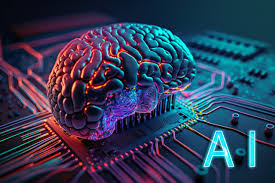By Abdulmalik Abdulwahab

Artificial Intelligence (AI) tools are undeniably transforming various sectors, and education is no exception. The potential of AI to remake education is vast, offering many advantages that can significantly enhance the learning experience for students and educators.
By adding AI tools thoughtfully into the curriculum, educators can help students navigate the complexities of modern technology, making the most of its benefits while cutting its limitations.
One of the most pivotal advantages of AI in education is its capacity for personalization. Traditional “one-size-fits-all” teaching methods often fail to address the unique needs and learning paces of individual students.
AI, however, can adapt to the specific needs, abilities, and interests of each student, offering a laid learning experience.
This adaptability allows students to learn at their own pace, which is particularly beneficial in an era where attention spans are increasingly challenged by constant exposure to high-frequency motivation, such as social media and advertising.
Nevertheless, AI can streamline administrative and grading tasks, freeing up valuable time for teachers to interact more with students, boost classroom instruction, and develop more effective teaching ways.
This efficiency not only elevates the quality of education but also allows educators to focus more on important relational skills, such as emotional intelligence, which are crucial for students’ overall development.
Furthermore, AI has the potential to give access to education, break down geographical barriers, and provide opportunities for students in network areas. Advanced AI systems can offer online courses, making it possible for students globally to access quality education.
The successful implementation of AI in these areas, however, established reliable internet connectivity. Innovations like satellite internet, provided by companies such as SpaceX with their Starlink project are crucial, ensuring students even in the most isolated regions can benefit from AI-based learning platforms.
In addition to wide access, AI can enrich the teaching and learning process through a variety of interactive tools. From video tutorials to educational games, AI resources can make learning more engaging and effective. These tools cater to different learning styles and preferences, making education a more inclusive and enjoyable experience for all students.
Moreso, AI can significantly promote inclusion and diversity in education. By providing personalized learning experiences, AI ensures that students with different learning styles and abilities receive the support they need. Moreover, AI can respond to problems in multiple languages making it an excellent tool for multilingual classrooms, creating a more inclusive learning environment.
AI can also help broaden students’ ideas by providing access to information from diverse cultural backgrounds. This exposure to different viewpoints and knowledge can foster a more inclusive and diverse learning environment, which is particularly valuable for students from underrepresented communities or those learning in a new country.
Moreover, the instant feedback and accurate information provided by AI can well improve students’ learning outcomes. Immediate answers to questions help reinforce understanding, while additional resources, such as videos and articles, deepen knowledge and enhance the learning experience. AI can engage and promote the critical thinking of students.
By challenging students with open-ended questions and encouraging the exploration of different ideas, AI creates a more collaborative and engaging learning environment.
In essence, while the advantages of AI in education are clear, it is crucial to address the challenges it poses. Issues such as data privacy, security, and equitable access to technology must be proactively managed.
Legislators should pass laws that protect student privacy rights, enhance fair access to AI-supported learning resources, and promote responsible development and deployment of AI systems within educational institutions. Policymakers can create a supportive environment for responsible innovation in education by laying clear criteria and benchmarks.
AI tools are indeed friends to education, offering personalized learning experiences, enhancing efficiency, promoting inclusion and diversity, and improving learning outcomes. By adopting an equitable approach that takes into account ethical considerations, such as data privacy and inclusivity, we can harness the transformative potential of AI to enrich educational experiences and empower students to thrive in the digital age.
As we navigate the complexities associated with AI use in education, it is crucial to remain vigilant, proactive, and mindful of its ethical implications, ensuring that AI plays a meaningful role in the pursuit of knowledge and excellence in learning.
